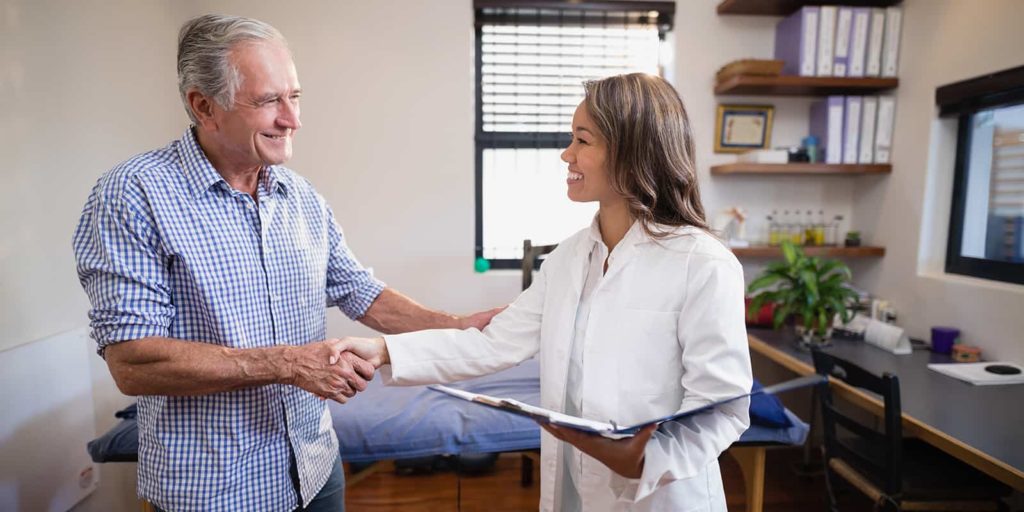Read Time: 5 Mins.
Medical marijuana (MMJ) is legal in 30 U.S. states, Washington, D.C., and Canada. This wellness movement transcends politics, race, age, and social status because it is a grass-roots effort (pun intended) led by people, not politicians. Unfortunately, for decades, scientific and medical research languished as the federal government restricted access to cannabis. It did this even while conducting its own research and obtaining a cannabis patent. Not surprisingly, part of the patent description is aptly profound: “This new found property makes cannabinoids useful in the treatment and prophylaxis of wide variety of oxidation associated diseases, such as ischemic, age-related, inflammatory and autoimmune diseases.” Like the federal government, the medical marijuana community knows it is effective for treating a variety of medical conditions, and doctors throughout the mainstream medical profession are beginning to take note.
I value my journey as an MMJ patient as I’m continuingly seeking knowledge about it. For me, obtaining an MMJ card is time well spent. I live in California and the process is fairly straight forward as you must communicate with a doctor. While online and kiosk options exist, for those adults with questions about cannabis who prefer speaking with a doctor in person, MMJ clinics are easy to locate. My personal experience has been similar to any other office visit. I’ve filled out patient forms, described my medical history, stated the reason for my visit and had my BP checked. I then discuss the specific reasons for my visit to the doctor. Keep in mind that you must have a recognized medical condition to receive an MMJ card, not just because you have a nasty hangnail. Now, to be perfectly honest, it is extremely rare to be denied a clinic-issued MMJ card in California. The inside joke is that if you have a heartbeat, cash (preferred), and can think of a valid medical reason for the card, you will receive it. Oh, and you have to pay a fee to “renew” every year.
In 1996, California led the nation in legalizing medical marijuana. The law requires that the physician caring for the patient comply with the following:
- Possess a license in good standing to practice medicine or osteopathy in California issued by the Medical Board of California or the Osteopathic Medical Board of California.
- Take responsibility for an aspect of the medical care, treatment, diagnosis, counseling, or referral of the patient.
- Perform a medical examination.
- Document in the patient’s medical record that the patient has a serious medical condition for medical use of marijuana.
- Have the patient sign an authorized medical release of information.
- Provide to the patient copies of the medical records stating that he or she has been diagnosed with a serious medical condition and that the medical use of marijuana is appropriate.
You cannot purchase cannabis at a California clinic, AKA, fill your prescription, and I’ve never been given an actual referral to a dispensary. What’s more, most current MMJ doctors are treating patients solely for MMJ purposes. This may differ state-by-state and here’s info on MMJ laws in your state.
Tell Me Where It Hurts
If you’re a mature adult, chances are you have a primary physician if not a plethora of specialists. However, it is not uncommon for traditional physicians to lack knowledge of the healing benefits of Cannabis Sativa, Cannabis Indica, or Hemp-based CBD. Don’t fault them. For nearly 100 years, cannabis has been literally demonized (devil weed) by society and remains illegal under federal law. Doctors were, of course, unwilling to risk revocation of the state-issued license to practice medicine by prescribing medical marijuana, even if it is legal in their state. For grownups with questions about medical marijuana, this presents problems. It’s been more than 20 years since California voters passed Proposition 215 legalizing medical marijuana. Now that the majority of states and Washington D.C. follow California’s lead, things are finally changing for the better. Slowly but surely, adults now have access to doctors who are becoming more educated and open to discussing MMJ’s role in treating their patients.
If you have a medical condition and are under a doctor’s care, you already know it’s important to discuss all aspects of your medical treatment. Just as you’d tell her about all your medications, supplements, vitamins, diet and lifestyle, cannabis use or questions about it should be a normal part of the discussion. Each person’s body responds to different types of care and introducing a new treatment option needs to be considered from a holistic viewpoint. For example, cannabis has shown to be effective in treating chronic pain, and may, in fact, reduce use and reliance on traditional opioids or other narcotic-based pharmaceutical pain-relieving drugs. So how do you go about finding a good match for you? First, ask your primary care physician. He or she may not be of much help (yet) but start there. Next, ask your friends and relatives about their MMJ doctor experiences. And of course, go online to Three Wells, we’re here to help our community!
Our Veterans Deserve Better
For our nation’s Veterans, MMJ is showing promise in treating PTSD among other ailments, and the Veterans Administration is finally moving forward in this regard:
“Veteran participation in state marijuana programs does not affect eligibility for VA care and services. VA providers can and do discuss marijuana use with Veterans as part of comprehensive care planning, and adjust treatment plans as necessary.”
While VA doctors can’t (yet) prescribe or obtain it through the VA, current policy no longer denies (or prosecutes) Veterans their right to discuss and use MMJ as part of their overall treatment:
“VA health care providers will record marijuana use in the Veteran’s VA medical record in order to have the information available in treatment planning. As with all clinical information, this is part of the confidential medical record and protected under patient privacy and confidentiality laws and regulations.”
Why Talking With Doctors Matters
The modern cannabis business can be complicated due to the sheer volume of products and ways to consume. Online research is a godsend, but nothing substitutes discussing options with a licensed and highly trained medical professional. Those experts who have researched medical marijuana are like to provide candid insights for your particular condition. Online self-education is certainly a good thing but talking with a knowledgeable expert brings a whole new level of understanding. This may result in more confidence in your purchasing decisions, consumption methods, or even home-growing efforts.
On the other hand, it is possible that your doctor may not be educated about MMJ, but if you don’t ask, how would you know? Further, if primary care doctors find that more and more patients are asking questions, this may spur action on their part. In turn, professional medical societies such as the American Medical Association may encourage more MMJ friendly policies such as scientific research: “The AMA calls for further adequate and well-controlled studies of marijuana and related cannabinoids in patients who have serious conditions for which preclinical, anecdotal, or controlled evidence suggests possible efficacy. The AMA also urges that marijuana’s status as a federal schedule I controlled substance be reviewed with the goal of facilitating the conduct of clinical research and development of cannabinoid-based medicines.”
Be Well. Live Well. Do Well.
Three Wells recognizes the importance of having relationships with physicians and medical experts. Our featured professionals, Debora Malka, M.D. Ph.D., Genester Wilson-King, M.D. FACOB, and Connie McLaughlin-Miley, Pharm D., M.B.A., bring incredible expertise to our endeavors.
Dr. Malka is a clinician and an educator who helps patients find alternatives to dependence on pharmaceuticals and discover the benefits of choosing healthier options, including cannabis. She has previously served as the medical director for a group of clinics providing medical marijuana evaluations in California, training 50 physicians serving over 300,000 patients.
Dr. Wilson-King is a nationally recognized wellness and cannabis speaker on topics such as Cannabis as Medicine, Cannabis use in Obstetrics and Gynecology, Cannabis and The Aging Patient. She is also a Fellow of the American College of Obstetrics and Gynecologists, and a Diplomate of the American Board of Obstetrics and Gynecology.
Dr. McLaughlin-Miley is a 20+ year veteran of the global pharmaceutical and biotechnology industries with a background in clinical research, health economics, epidemiology and business. She is enthusiastic about the current medical cannabis environment due to the increasing amount of scientific, peer-reviewed literature that has become available in recent years.
If you’re a physician that is interested in listing with us on our site, please add your practice to our site or contact us.
It’s Your House. Share It.
The medical marijuana movement in this country (and Canada) has evolved from the early activist stage to becoming part of everyday society. Yes, California led the way, but sensible people in other states have picked up the challenge with undeniable fervor. This is how real change happens and as a community, we must encourage mainstream medical experts and their professional organizations to research the numerous benefits that cannabis and hemp CBD have to offer. Further, the medical profession needs to change their perceptions based on society’s oft-repeated denigration of cannabis as a “gateway drug.” Talk with your primary care physician and specialists to seek their advice, and if they need education, encourage them to conduct their own research. After all, this amazing plant is a medicine that just happens to grow naturally. Cultivators and growers have engineered strain variations over the years, and it is past time for the mainstream medical community to do the same. The scientific method will help validate the numerous benefits that cannabis provides to patients. Be an ambassador and share what you know with your doctor, or at the very least, start a conversation.
Speaking of sharing, we want to hear about YOUR experiences and stories. Start a conversation on our social channels and be well.




